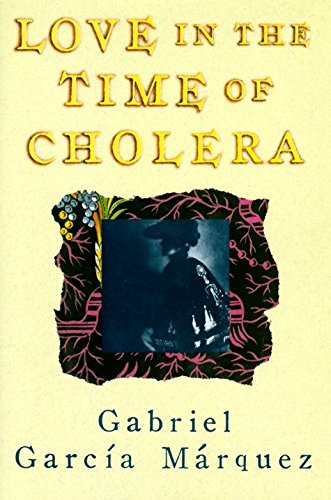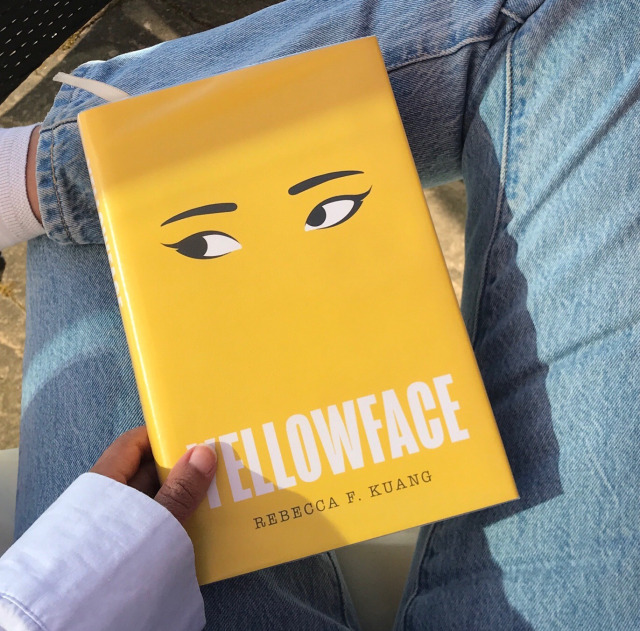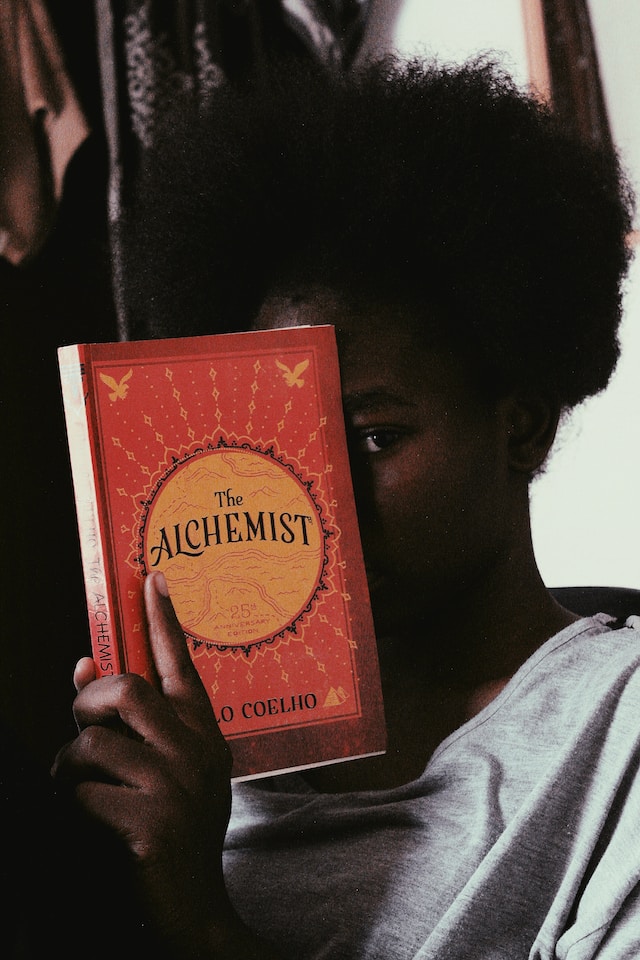The Art of Waiting in Love in the Time of Cholera
Introduction
Hello, dear readers. My name is Gabriel García Márquez, and I am the author of the novel Love in the Time of Cholera, which is the subject of this article. I am a Colombian writer and Nobel laureate, and I am known for my works of magical realism, a genre that blends reality and fantasy in a way that reveals the extraordinary in the ordinary. I have written many novels, short stories, and essays, but Love in the Time of Cholera is one of my most famous and beloved works. It is a story of love, waiting, and cholera, and how these three elements shape the lives and personalities of the characters.
In this article, I will explore the concept of waiting in love in the time of cholera, and how it affects the characters and their relationships. I will also share some insights and tips on how to cope with waiting in love, and how to find meaning and happiness in the process. I hope you will enjoy reading this article, and that it will inspire you to reflect on your own experiences of waiting in love.
What is Waiting in Love?
Waiting in love is a common phenomenon that many people experience at some point in their lives. It is the state of being in love with someone, but not being able to be with them for various reasons. These reasons could be external, such as distance, social barriers, family opposition, or historical events; or internal, such as fear, doubt, insecurity, or indecision. Waiting in love can also be voluntary or involuntary, depending on whether the person chooses to wait or is forced to wait by circumstances.
Waiting in love can have different effects on different people, depending on how they define love and what they expect from it. For some, waiting in love can be a form of devotion, sacrifice, patience, or endurance. They may see waiting as a way of proving their love, or as a test of their faith. They may also find joy and satisfaction in the anticipation, the hope, and the imagination of the future. For others, waiting in love can be a form of frustration, loneliness, boredom, or madness. They may see waiting as a waste of time, or as a source of suffering. They may also feel angry, resentful, or depressed by the lack of fulfillment, the uncertainty, and the reality of the present.
Waiting in love can also be challenged by other forms of love that may offer different kinds of satisfaction or fulfillment. These could be romantic, sexual, platonic, familial, or spiritual forms of love, that may appeal to different aspects of the person’s needs and desires. Waiting in love can also be contrasted with other forms of waiting, such as waiting for death, waiting for God’s will, or waiting for a miracle, that may have different implications and outcomes.
How Does Waiting in Love Shape the Characters in Love in the Time of Cholera?
In Love in the Time of Cholera, waiting in love is a central theme that influences the lives and personalities of the main characters: Florentino Ariza, Fermina Daza, and Dr. Juvenal Urbino. Their love stories span over 50 years, during which they experience different forms and stages of waiting in love, and face different challenges and opportunities.
Florentino Ariza
Florentino Ariza is the protagonist of the novel, and the epitome of waiting in love. He falls in love with Fermina Daza when they are teenagers, and he remains faithful to her for over 50 years, despite her rejection and her marriage to Dr. Juvenal Urbino. He waits for her with a passion that borders on obsession, and he expresses his love through letters, poems, music, and flowers. He also waits for her with a patience that borders on resignation, and he accepts his fate without complaint or rebellion. He does not give up on his love, even when he faces obstacles, temptations, or dangers.
However, Florentino’s waiting in love is not without consequences. His waiting affects his personal and professional life, as well as his physical and mental health. He neglects his family, his friends, and his career, and he becomes a lonely and isolated man. He also suffers from various ailments, such as insomnia, fever, diarrhea, and impotence, and he becomes a melancholic and paranoid man. He also engages in numerous affairs with different women, some of whom he loves, some of whom he uses, and some of whom he abuses. He does not consider these affairs as betrayals, but as distractions, or as remedies for his pain. He also does not seek happiness or fulfillment in these affairs, but only temporary relief or escape.
Florentino’s waiting in love is also challenged by other forms of love that may offer him different kinds of satisfaction or fulfillment. One of these is his affair with Petra Cotes, a mulatta widow who owns a farm and a lottery. She is the only woman who loves him as much as he loves Fermina, and she is the only woman who makes him happy and prosperous. She also teaches him new aspects of his sexuality and his identity, and she helps him to overcome some of his ailments and fears. However, Florentino does not see Petra as a threat to his love for Fermina, but as a complement. He does not want to marry her, or to leave her, but to keep her as a lover and a friend.
Another form of love that challenges Florentino’s waiting in love is his friendship with José Arcadio Buendía, a young revolutionary who is the son of Colonel Aureliano Buendía, the hero of the civil war. José Arcadio introduces Florentino to the world of politics and social justice, and he inspires him to join the cause of the liberals against the conservatives. He also exposes him to the dangers and the horrors of the war, and he saves him from death several times. However, José Arcadio also betrays Florentino, by seducing and impregnating his niece, América Vicuña, who is also Florentino’s lover and pupil. He also abandons Florentino, by leaving the country and joining another revolution. Florentino does not see José Arcadio as a friend, but as a son, and he does not hate him, but he forgives him.

Fermina Daza
Fermina Daza is the antagonist of the novel, and the object of Florentino’s waiting in love. She also falls in love with Florentino when they are teenagers, but she changes her mind when she sees him for the first time after a long separation. She realizes that her love was based on illusion, and she decides to marry Dr. Juvenal Urbino, a wealthy and rational man who offers her stability and security. She waits for him with a respect that borders on indifference, and she accepts his marriage proposal without enthusiasm or passion. She also waits for him with a loyalty that borders on obedience, and she follows his rules and expectations without question or protest. She does not regret her decision, even when she faces difficulties, conflicts, or boredom.
However, Fermina’s waiting in love is not without consequences. Her waiting affects her family and social life, as well as her emotional and intellectual development. She sacrifices her dreams, her freedom, and her identity, and she becomes a submissive and conventional woman. She also suffers from loneliness, isolation, and dissatisfaction, and she becomes a bitter and unhappy woman. She also has a brief affair with a young painter, Lorenzo Daza, who is her cousin and her admirer. She does not consider this affair as a liberation, but as a mistake, or as a punishment. She also does not seek love or pleasure in this affair, but only curiosity or revenge.
Fermina’s waiting in love is also challenged by other forms of love that may offer her different kinds of satisfaction or fulfillment. One of these is her friendship with José Arcadio Buendía, the same young revolutionary who is Florentino’s friend and América’s lover. José Arcadio introduces Fermina to the world of art and culture, and he inspires her to rediscover her beauty and her creativity. He also exposes her to the joys and the sorrows of the human condition, and he makes her laugh and cry. However, Fermina does not see José Arcadio as a lover, but as a friend, and she does not want to betray her husband, or to hurt her family, but to keep him as a companion and a confidant.
Another form of love that challenges Fermina’s waiting in love is her relationship with her children, Aureliano and Ofelia. She loves them with a maternal instinct that borders on possessiveness, and she tries to protect them and guide them in their lives. She also loves them with a pride that borders on arrogance, and she expects them to follow her example and her advice. However, her children do not share her views or her values, and they rebel against her authority and her interference. They also have their own forms of love and waiting, that differ from hers, and that cause her pain and disappointment. Fermina does not see her children as individuals, but as extensions of herself, and she does not respect them, but she criticizes them.
Dr. Juvenal Urbino
Dr. Juvenal Urbino is the love interest of the novel, and the rival of Florentino Ariza. He marries Fermina Daza when they are young, and he provides her with a comfortable and respectable life. He loves her with a reason that borders on calculation, and he chooses her for her beauty and her intelligence. He also loves her with a duty that borders on obligation, and he respects her as his wife and his partner. He does not doubt his decision, even when he faces challenges, temptations, or regrets.
However, Juvenal’s waiting in love is not without consequences. His waiting affects his professional and civic life, as well as his moral and spiritual growth. He dedicates his life to his work, his family, and his community, and he becomes a successful and influential man. He also strives to improve the health, the education, and the culture of his city, and he becomes a progressive and enlightened man. He also has a brief affair with a young widow, Barbara Lynch, who is his patient and his admirer. He does not consider this affair as a sin, but as a weakness, or as a reward. He also does not seek love or happiness in this affair, but only vanity or escape.
Juvenal’s waiting in love is also challenged by other forms of love that may offer him different kinds of satisfaction or fulfillment. One of these is his friendship with José Arcadio Buendía, the same young revolutionary who is Florentino’s friend and Fermina’s friend. José Arcadio introduces Juvenal to the world of science and technology, and he inspires him to question his rational worldview and his political ideals. He also exposes him to the wonders and the mysteries of the universe, and he makes him curious and amazed. However, Juvenal does not see José Arcadio as a friend, but as a rival, and he does not want to learn from him, or to admire him, but to compete with him and to surpass him.
Another form of love that challenges Juvenal’s waiting in love is his relationship with God, whom he believes in and worships. He loves God with a faith that borders on fanaticism, and he tries to follow his commandments and his teachings. He also loves God with a fear that borders on superstition, and he expects his rewards and his punishments. However, his relationship with God is not always harmonious or consistent, and he sometimes doubts, questions, or rebels against his will. He also has his own forms of waiting for God, such as waiting for his grace, his mercy, or his justice, that may have different implications and outcomes.
How to Cope with Waiting in Love?
Waiting in love can be a rewarding or a painful experience, depending on how one copes with it. There is no definitive answer or formula for how to cope with waiting in love, as each person and each situation is unique and complex. However, based on my own experience and observation, I can offer some general suggestions and tips that may help you to cope with waiting in love in a healthy and positive way.
- Define your love and your expectations. Before you decide to wait for someone, you need to define what love means to you, and what you expect from it. You need to be honest and realistic with yourself and with the other person, and you need to communicate your feelings and your needs clearly and respectfully. You also need to be aware of the risks and the benefits of waiting, and you need to be prepared for the possible outcomes, whether they are favorable or unfavorable.
- Find your purpose and your passion. While you wait for someone, you need to find your purpose and your passion in life, and you need to pursue them with enthusiasm and dedication. You need to have goals and dreams that motivate you and inspire you, and you need to have activities and hobbies that entertain you and enrich you. You also need to have a balance between your personal and professional life, and you need to have a sense of fulfillment and achievement in both.
- Cultivate your relationships and your network. While you wait for someone, you need to cultivate your relationships and your network with other people, and you need to appreciate and enjoy them with gratitude and generosity. You need to have friends and family who support you and care for you, and you need to have mentors and colleagues who guide you and challenge you. You also need to have a diversity of relationships and a network that expose you to different perspectives and experiences, and that help you to grow and learn as a person.
- Nurture your health and your well-being. While you wait for someone, you need to nurture your health and your well-being, and you need to take care of them with discipline and responsibility. You need to have a healthy diet and a regular exercise, and you need to have a good sleep and a proper hygiene. You also need to have a positive attitude and a good humor, and you need to have a coping mechanism and a stress management strategy.
- Seek your happiness and your peace. While you wait for someone, you need to seek your happiness and your peace, and you need to find them within yourself and within your surroundings. You need to have a sense of joy and satisfaction in the present, and you need to have a sense of hope and optimism for the future. You also need to have a sense of acceptance and forgiveness for yourself and for others, and you need to have a sense of harmony and balance in your life.
Conclusion
Waiting in love is an art that requires skill, patience, and creativity. It is not an easy or a simple task, but it can be a rewarding and a meaningful one. In Love in the Time of Cholera, I have tried to portray the different aspects and consequences of waiting in love, and how it shapes the lives and personalities of the characters. I have also tried to share some insights and tips on how to cope with waiting in love, and how to find meaning and happiness in the process.
I hope you have enjoyed reading this article, and that it has inspired you to reflect on your own experiences of waiting in love. I also hope that you will read my novel, Love in the Time of Cholera, and that you will discover the magic and the beauty of waiting in love in the time of cholera. Thank you for your attention and your interest.










